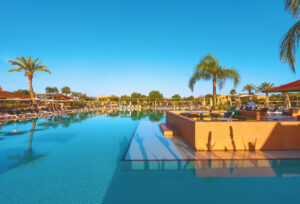If you’re planning a vacation to Vietnam, the Vietnamese Dong (VND) currency is your key to unlocking the richness of a country overflowing with diverse and dramatic landscapes, amazing food and a complex but fascinating history.
A country perfect for even the most intrepid traveller, there’s something for every taste in Vietnam. Start your day with a coffee – Vietnam is known as the second-largest producer in the world, and the drink is deeply embedded in Vietnamese culture. Then it’s time to explore the beautiful white-sand beaches, visit the eclectic markets offering an array of fabrics and fresh seafood and admire the vast and picturesque Vietnamese vistas.
Dining out in Vietnam
A country renowned for its fresh and flavoursome ingredients where the use of dairy products is minimal and there’s a plentiful supply of herbs and vegetables, common ingredients in Vietnamese cuisine include vibrant lemongrass, mint, lime, cinnamon, ginger and coriander. A three-course meal for two people in a mid-range restaurant will cost you around £13.50.
Try a bánh mì (Vietnamese sandwich). Served in a baguette with a thin crust, this sandwich is cut lengthwise and then filled with different ingredients – usually one or more meats with vegetables. Pork belly or Viatnamese sausage are both popular options.
Hu tieu (rice-noodle soup, known as pho) is of the most well-known Vietnamese dishes. The version you’ll find in southern Vietnam, known as Phnom Penh noodle soup, is made with pork, quail’s egg and prawns, perfectly combined with coriander and spring onions. As an alternative, try Mì Quang noodles – peanuts, rice crackers and pork in a turmeric broth.
For a heartier option, Ca Kho To is a tempting dish of caramelised fish served in a clay pot. Prices are incredibly reasonable – a main meal in an inexpensive restaurant will cost you between £1.30-£1.99.
The price of drinks
A 500ml bottle of domestic beer will cost you from just 50p to £1 and imported beer between 80p and £1.60.
A mid-range bottle of wine in a local supermarket will cost you between £6.60 and £10. Try the Vang Dalat, a quaffable red that is a good match with robust meat dishes. For something stronger, try Son Tinh, Vietnam’s award-winning rice-based spirit.
A 1.5 litre bottle of water will cost you between 30p and 70p in a local supermarket – avoid tap water in Vietnam and only drink bottled water.
Out and about
There’s lots to explore in this mesmerising south-east-Asian country on the South China Sea. From Buddhist pagodas to bright and bustling cities and beautiful beaches, there’s something for all.
A trip to Vietnam would not be complete without a visit to Ho Chi Minh City, here you’ll find French colonial landmarks, war museums and the Chu Chi tunnels. The tunnels are best explored on a guided tour – a small group tour costs from around £21.
Hoi An Ancient Town is situated on the banks of Thu Bon River in Quang Nam province. Try a food tour by night from £23 and you’ll be able to sample local delicacies and specialities.
A nature-lover’s paradise, Trang An Grottoes is a gathering of 50 cross water caves, 31 valleys and home to 600 kinds of flora and 200 types of fauna. Or if history is of interest, make a visit to the War Remnants Museum which houses fascinating artefacts and documents which tell the story of the Vietnam War.
And if sprawling vistas and amazing views are on your bucket list, pay a visit to the giant hands cradling Vietnam’s newest tourist attraction, the Golden Bridge, with its epic panoramic views.
How much spending money should I take to Vietnam?
Budget for around £30 per person per day, or £210 per person per week for your visit to Vietnam, which will cover all food and excursions.
Tipping in Vietnam
In restaurants, the service charge is usually included in bills at 5%-10%, but this rarely reaches waiting staff, so, a tip of around 10,000 dong will be appreciated if you experience particularly good service.
Similarly in hotels, if the level of services is very good, a tip of one or two pounds (around 40,000 dong) is acceptable.
Tips are not expected in taxis but round up your fare to the nearest 1,000 dong if you like.
In bars, staff are usually paid a low wage, so you can help make up for this with a tip.
*Prices correct at the time blog was published and are subject to availability. T&C’s apply.






